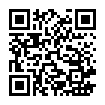Способна ли система искусственного интеллекта обладать самосознанием?
Научная статья
Аннотация
Литература
Гаврюсев В. Г. Измерение и свойства пространства-времени / В. Г. Гаврюсев. – Москва: Едиториал УРСС, 2004. – 170 с. – ISBN 5-354-00678-3.
Клименко А. В. Основы естественного интеллекта. Рекуррентная самоорганизация / А. В. Клименко. – Ростов-на-Дону: Изд-во РГУ, 1994. – 304 с. – ISBN 5-7507-0983-3.
Кроуфорд К. Атлас искусственного интеллекта: руководство для будущего / К. Кроуфорд. – Москва: АСТ, 2023. – 320 с. – ISBN 978-5-17-148567-2.
Подосинов А. В. Ex oriente lux! Ориентация по странам света в архаических культурах Евразии / А. В. Подосинов. – Москва: Языки русской культуры, 1999. – 718 с. – ISBN 5-7859-0035-1.
Поликарпов В. С., Курейчик В. М., Поликарпова Е. В., Курейчик В. В. Современная философия и искусственный интеллект / В. С. Поликарпов, В. М. Курейчик, Е. В. Поликарпова, В. В. Курейчик. – Ростов-на-Дону – Таганрог : Северо-Кавказский научный центр высшей школы ЮФУ, Таганрогский технологический институт ЮФУ, 2009. – 160 с. – ISBN 978-5-8327-0332-9. – EDN XZEBUD.
Поликарпов В. С. Этика высокотехнологичного общества / В. С. Поликарпов, В. А. Поликарпова, Е. В. Поликарпова. – Таганрог: Изд-во ТТИ ЮФУ, 2010. – 65 с. – ISBN 978-5-8327-0322-0. – EDN YKYDGP
Поликарпова Е. В. Современные ИКТ и «психокосмос» человека / Е. В. Поликарпова. – Таганрог: Технологический институт Федерального государственного образовательного учреждения высшего профессионального образования «Южный федеральный университет» в г. Таганроге, 2011. – 217 с. – ISBN 978-5-8327-0327-5. – EDN XUHYQP.
Рассел С. Искусственный интеллект. Современный подход / С. Рассел, П. Норвиг. – Москва: Издательский дом «Вильямс», 2006. – 1408 с. – ISBN 5-8459-0887-6.
Уилер Дж. А. Предвидение Эйнштейна / Дж. А. Уилер. – Москва: Мир, 1970. – 112 с.
Хант Г. О природе сознания: С когнитивной, феноменологической и трансперсональной точек зрения / Г. Хант. – Москва: АСТ, 2004. – 555 с. – ISBN 5-17-022758-2.
Философские проблемы новейших технологий / В. С. Поликарпов, В. М. Курейчик, В. А. Обуховец [и др.]. – Таганрог: Технологический институт Федерального государственного образовательного учреждения высшего профессионального образования «Южный федеральный университет» в г. Таганроге, 2010. – 396 с. – ISBN 978-5-8327-0379-4. – EDN XZEBTV.
Чернов И. В. Цифровизация как тенденция развития современного общества: специфика научного дискурса / И. В. Чернов // Гуманитарий Юга России. – 2021. – Т. 10, № 1. – С. 121–132. – DOI 10.18522/2227-8656.2021.1.11. – EDN ZEAHFW.
Чижов Е. Б. Пространства / Е. Б. Чижов. – Москва: Новый центр, 2001. – 278 с. – ISBN 5-89117-059-0.
Шенкар О. Имитаторы: Как компании заимствуют и перерабатывают чужие идеи / О. Шенкар. – Москва: Альпина Паблишерз, 2011. – 208 с. – ISBN 978-5-9614-1609-1.
Chalmers D. J. Could a large language model be conscious? / D. J. Chalmers // Boston Review. – August 9, 2023. – URL: https://arxiv.org/abs/2303.07103 (дата обращения: 20.03.2025)
Dehaene S. What is consciousness, and could machines have it? / S. Dehaene, H. Lau, S. Kouider // Science. – 2017. – No. 358(6362). – P. 486–492.
Kauffman S. A. What is consciousness? Artificial intelligence, real intelligence, quantum mind and qualia / S. A. Kauffman, A. Roli // Biological Journal of the Linnean Society. – 2023. – No. 139(4). – Р. 530–538. – DOI 10.1093/biolinnean/blac092.
Porter B. AI-generated poetry is indistinguishable from human-written poetry and is rated more favorably / B. Porter, E. Machery // Scientific Reports. – 2024. – No. 14. – DOI 10.1038/s41598-024-76900-1.

Поступила: 04.04.2025
Опубликована: 18.06.2025





